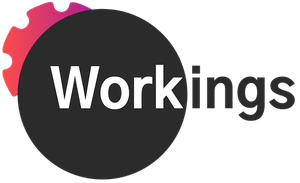Fast forward to yesterday morning:
I was the designated host of Steyer’s weekly AI Chat. (Katelyn Reilly and I take turns facilitating these open, online gatherings.) Instead of the usual exchange of AI-related news, I decided to try a “watch party”: sharing my screen with the meeting’s attendees, we spent the first 15 minutes of the chat quietly watching Mustafa Suleyman (CEO of Microsoft AI) address the question, “What is an AI anyway?” I had first watched this TED talk when it was released a couple weeks ago, and I was eager to discuss Suleyman’s proposal: that it might be helpful to think of AI not as a tool but instead as “something like a new digital species.”
To me, the species metaphor was a breath of fresh air from a prominent AI scientist! So many in the field, including OpenAI’s Sam Altman and Google’s Demis Hassabis1, insist on a “tool-not-creature” framework. I get it: the prospect of living and working alongside a new species, let alone being displaced by one, is unnerving to say the least. But the more I think about it, the more I suspect the “tool” metaphor is being used in part to soft-pedal the breadth and depth of AI’s potential impact on society. In contrast, the “species” metaphor, which Suleyman himself concedes is imperfect, nevertheless feels more honest to me. Perhaps most importantly, it captures what is profoundly different about AI vs. past tools: “...this is not just another invention,” says Suleyman. “AI is itself an infinite inventor.”
So, how did my chat compadres respond to Suleyman’s species metaphor, you ask?
“In Texas, we’d call this horseshit,” said one. “Why are we even trying to find a metaphor?,” asked another. “What use are metaphors?”
It was a fun conversation. Not because I agreed (I absolutely did not!2) but because there we were: gathered around, grappling with one another in an effort to get more clear ourselves.
What about you? What’s your relationship to debate? What’s your appetite for argument? I immediately connected my enjoyment of this heated chat to my upbringing, but I understand that sparring, especially in a professional setting, is not everyone’s cup of tea. So: what engages you? What helps you learn? I’d love to hear: kwalton@steyer.net.
And, presuming you’re not anti-metaphor (there can’t be more of you, can there?), I’d also love to know your take on where AI is heading: tool or creature?
I hope to hear from you,
Kate
1It’s a long interview—Hassabis talking to Hard Fork‘s Kevin Roose and Casey Newton. The whole thing is worth listening to but if you’re in a hurry, go to 36:08 for the tools-not-creatures discussion.
2Again: I personally consider the species metaphor both apt and refreshingly honest. And metaphors more generally? What’s not to love? They are the shortest of short stories! They are magical explainers that allow people to understand one another quickly—across disciplines, cultures, generations, and other divides. And they’re particularly useful when something (say, AI) is hard to describe, even for those who are building it. Think about it: roughly .01% of the population is developing technology that will radically affect the lives—and livelihoods—of us all. “We cannot control what we don’t understand,” said Suleyman in his talk, and I agree: if we (humans) ultimately manage to integrate AI into society while prioritizing safety and equity, it’ll be in part because we’ve found a way to think and talk about AI that practically everyone can access.
Photo by Arisa Chattasa on Unsplash



